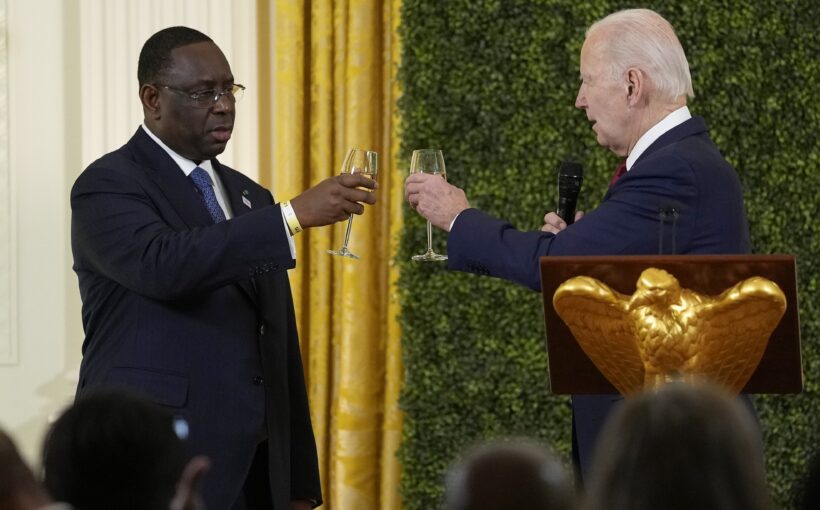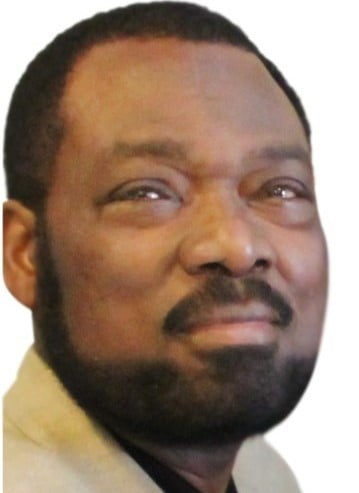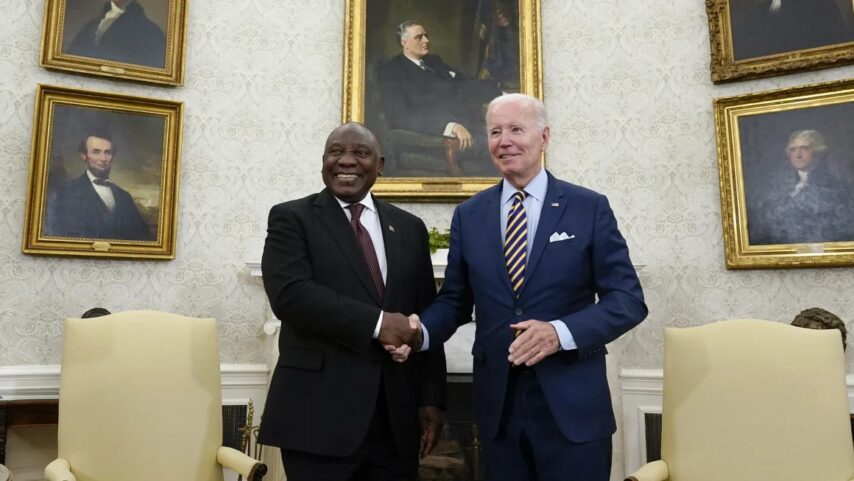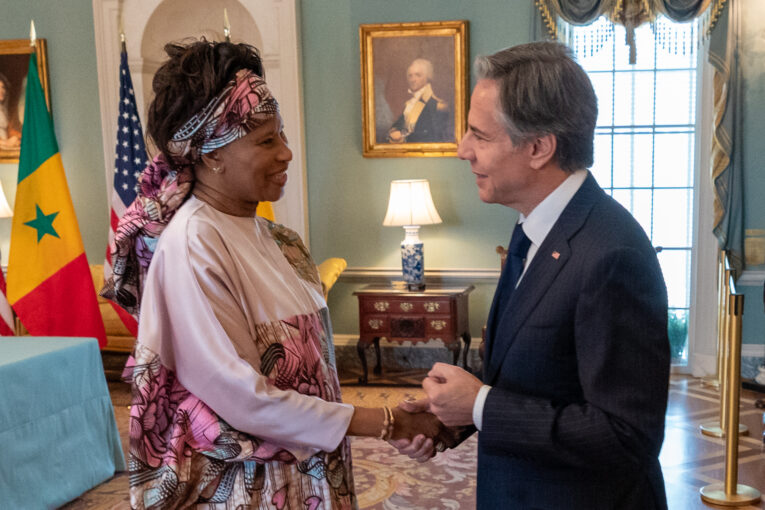President Joe Biden’s potential legacy to Africa


BY SOUMANOU SALIFOU
History’s judgment does not come down overnight. However, President Joe Biden’s July 21’s decision to drop out of the 2024 presidential race—a move indicative of the end of his decades-long political career—warrants an insight into the massive efforts of the 45th president of the United States to engage in Africa, a continent pushed to the back burner by his prejudiced predecessor who described it with an expletive not worth repeating here.
After taking charge in January 2021, Joe Biden wasted no time in reengaging with the international community, using the United Nations as a venue to achieve the robust U.S. foreign policy goals his administration established to regain global leadership. Remarkably, he stopped the U.S. exit from the World Health Organization planned by the Trump administration and continued U.S. financial contributions to a UN agency that has proven crucial to the health of populations throughout the global south. By resuming funding for the U.N. Population Fund, the new administration helped this other branch of the world body to continue its work to fight preventable maternal death.
Africa part and parcel of the 45th U.S. president’s global agenda
In a message delivered in early February 2022 by video to African leaders meeting virtually in the context of the African Union’s annual summit, President Biden struck a tone that reset the clock for U.S. relations with Africa. In what was his first speech to an international audience as president, he said, “The United States stands ready now to be your partner in solidarity, support, and mutual respect.” He then talked about a “shared vision of a better future” by working with Africa: “We must all work together to advance our shared vision of a better future; a future of growing trade and investment that advances prosperity for all our nations; a future that advances lives and peace and security for all our citizens; a future committed to investing in our democratic institutions and promoting the human rights of all people.”
During the previous administration, U.S. sluggish relationship with Africa was primarily driven by the desire to counter China’s and Russia’s influence. Admittedly, that was still part of the Biden’s calculus, but the new sheriff in town whose Africa policy primarily sought to promote democracy and governance in the region, was mindful of the need for African leaders to deliver for their people, a prerequisite for democracy to flourish.
As a result of the changed relationship, the president convened the second edition of the historic U.S.-Africa Leaders Summit initiated in August 2014 by the historic political figure with whom he served as vice president for eight years: Barack Obama.

For the second U.S.-Africa Leaders Summit, President Biden invited to Washington 49 sub-Saharan heads of state before the end of his second year in office, in mid-December 2022. He used the occasion to announce staggering initiatives to help jumpstart African economies brought on their knees by the pandemic, fight the devastating effects of climate change on the African continent—the least polluter that is the most affected by the climate crisis—and vowed to help promote democracy and good governance in the region.
In sum, he announced an investment package for Africa to the tune of $55 billion over the next three years to support the continent in the areas of security, the economy, and health. He strongly advocated for the admission of the African Union into the G20 group, and two seats for Africa on the U.N. Security Council. “Africa must finally participate in international institutions and in discussions on how to address global challenges,” he said, “it is an indispensable partner for the well-being of the whole world,” the president added.
A fine diplomat in charge of delivering the message

U.S. Secretaries of State travel extensively throughout the world, including Africa. But Biden’s pick for the job, Antony Blinken, stands apart not only for his exceptionally frequent travels to Africa, but also his eagerness to share with U.S. partners in Africa the president’s commitment to encourage them to espouse the United States ideals of democracy, governance, and human rights—if sometimes punishing them for not doing so.
China’s cooperation with African countries is rooted in its so-called policy of non-interference in other countries’ internal affairs. Beijing, a source of significant aid, investment, and loans for African countries, acts regardless of its African partners’ records in terms of democratization, human rights, or corruption. To the contrary, the United States largely ties its cooperation with its African partners to their records in these areas, raising the alarm when African leaders deviate from these U.S. core values.
In three and a half years, the Biden administration has called out African leaders a dozen times on occasions that include the following: Beninese President Patrice Talon’s arbitrary imprisonment of political opponents, forcing some of them into exile; Uganda’s Anti-Homosexuality Act which the administration described as “a tragic violation of universal human rights” and moved to adopt a series of sanctions against Lusaka; and slapping three high-level Malian officials with sanctions because of their connection with the Wagner Group, the Russian government-controlled military organization at the forefront of Russia’s stealing of mineral resources in a number of African countries, supposedly to help keep their leaders in power.
Soft diplomacy doesn’t always work. Case in point: the president of Benin, Patrice Talon, has so far ignored U.S. repeated “pressure” to bring back democracy in his country once hailed as a model of lawful state in Africa. (Dozens of Beninese political prisoners are still held behind bars, including some of the country’s finest leaders, university professor Joël Aïvo and former cabinet minister Reckya Madougou, both of whom Talon feared could beat him at the polls back in 2022, and arbitrarily had them arrested a year earlier.) However, by using the imperfect tool of soft diplomacy, the Biden administration has been sending a powerful message that resonates with Africans.
Biden, the Third Black U.S. President
A huge innovation of the Biden administration in its reengagement with Africa was the establishment of the President’s Advisory Council on African Diaspora Engagement in the United States. Launched by an Executive Order dated December 13, 2022, the initiative was intended, in the very words of the Executive Order, to “strengthen the dialogue between United States officials and the African Diaspora by elevating engagement through collaboration, partnership, and community-building among the United States, Africa, and other nations globally.”
The advisory council aims to capitalize on the historic reality that African Americans—both descendants of the slaves whose sweat and blood built this nation, and immigrants or descendants of immigrants from Africa and other world’s regions—have been foundational to “strengthening United States-Africa relations and in shaping United States foreign policy toward Africa.”
Besides past elders such as W.E.B. Dubois and Marcus Garvey, one remembers African American organizations such as the NAACP, Africare, and the National Council of Negro Women that have led the way in the efforts to connect with the motherland. In the past few decades, one can think of the late retired Black Baptist Minister Leon Sullivan, a social activist initially known for the “Sullivan Principles” on U.S. corporate conduct and practice in business ties to the previous apartheid regime in South Africa which paved the way for the demise of the racist regime. That is not to mention his other mega initiative, The African-African American Summit that started in 1991 and quickly developed into an umbrella effort over more than a decade, bringing together the leaders of various organizations in one place to meet with African heads of state, government officials, and experts to plan how best to work together to help Africa. Not only did the Summit movement contribute significantly to socio-economic development in Africa, but it opened the way for tens of thousands of African Americans to visit and experience Africa first-hand. Africans and observers of different backgrounds have praised the establishment of the President’s Advisory Council on African Diaspora Engagement in the United States.
It probably would not be farfetched to say that, thanks to the establishment of the President’s Advisory Council on African Diaspora Engagement in the United States and his excellent relationship with African Americans throughout his long political career, Biden has earned the title of Third Black U.S. President after former President Bill Clinton was labelled First Black U.S. President in the 1990s, before the real First Black U.S. President, Barack Obama, emerged two decades later.
Some African Americans don’t show any attachment to Africa; some even reject the appellation African American. But others care deeply. Representative Gregory Meeks, the Black U.S. congressman from New York who currently serves as the ranking member on the House Committee on Foreign Affairs, appeared to belong to the latter group when he showed some “impatience” a year after President Biden’s promise in December 2022 to visit Africa did not materialize.

